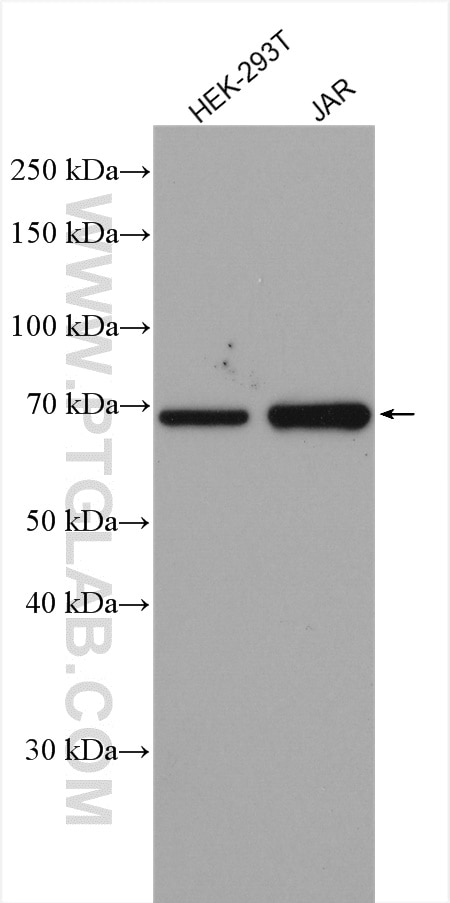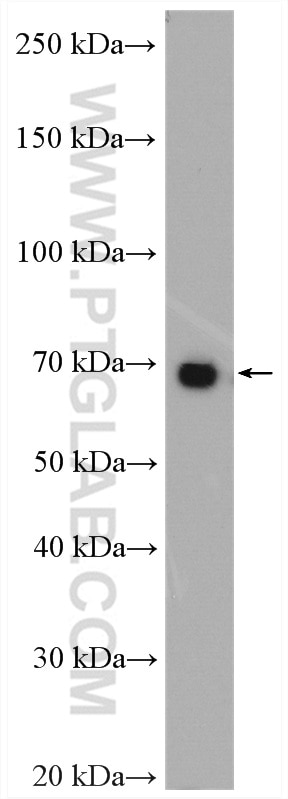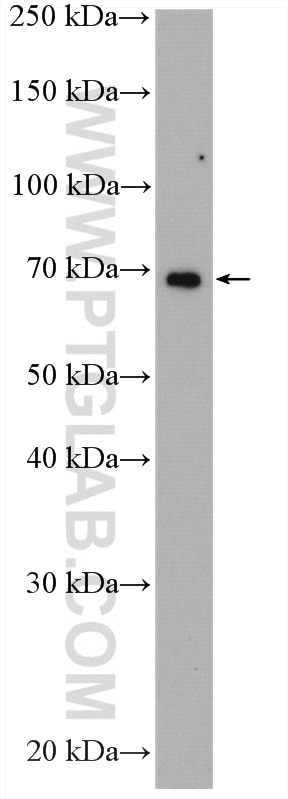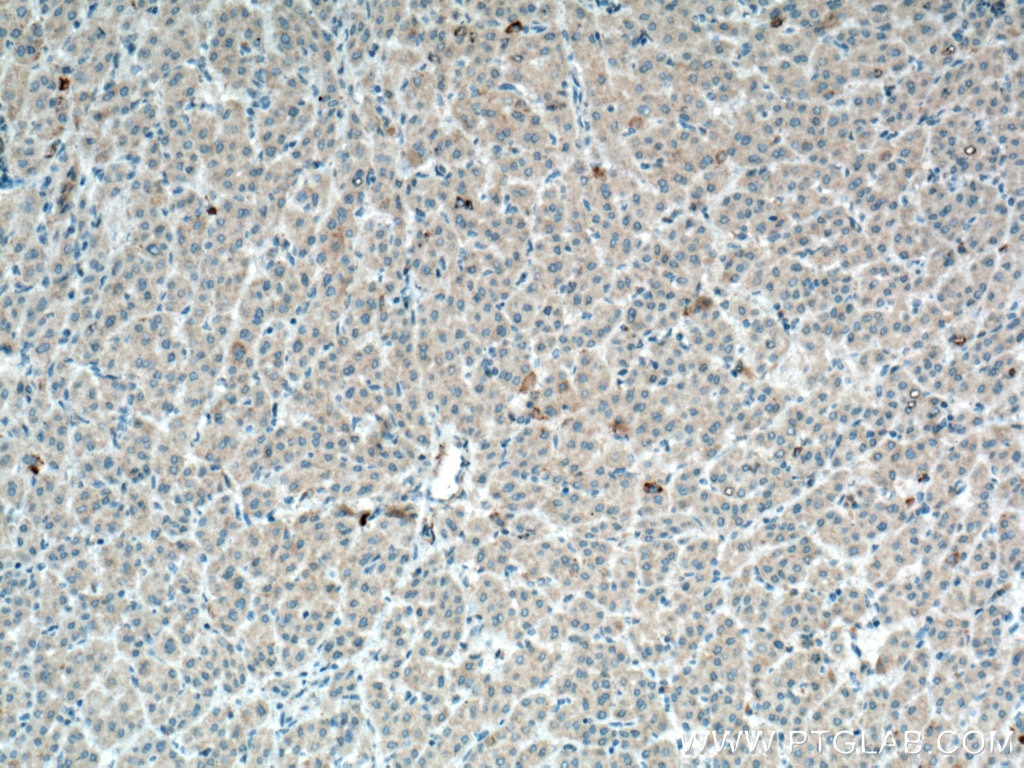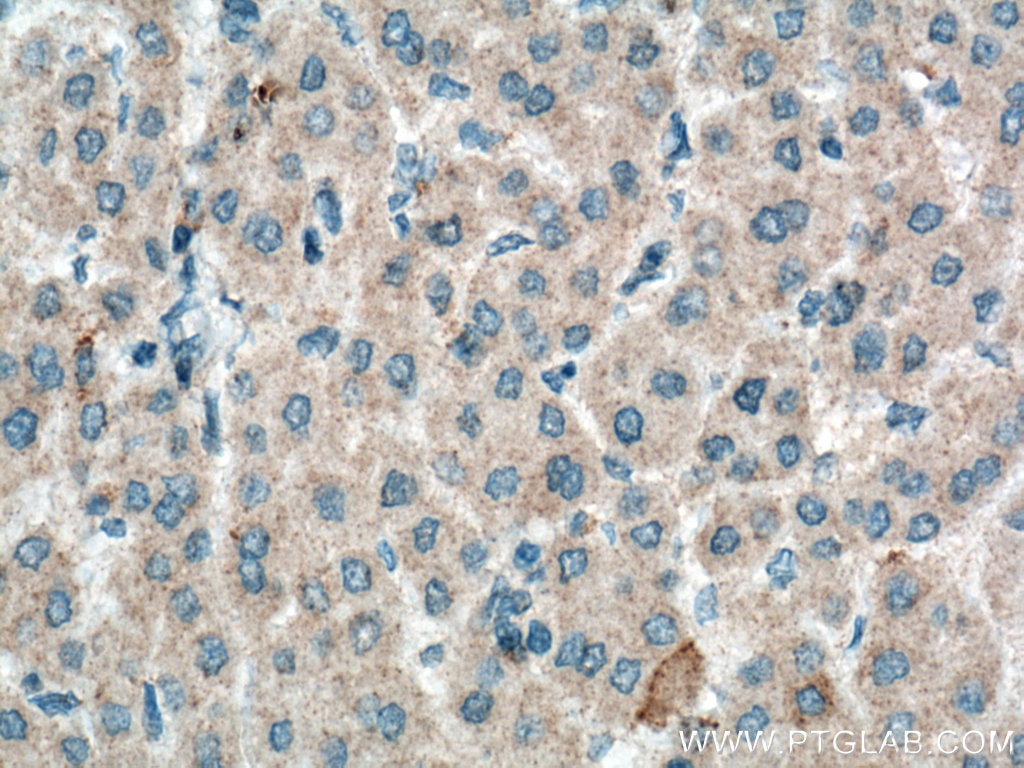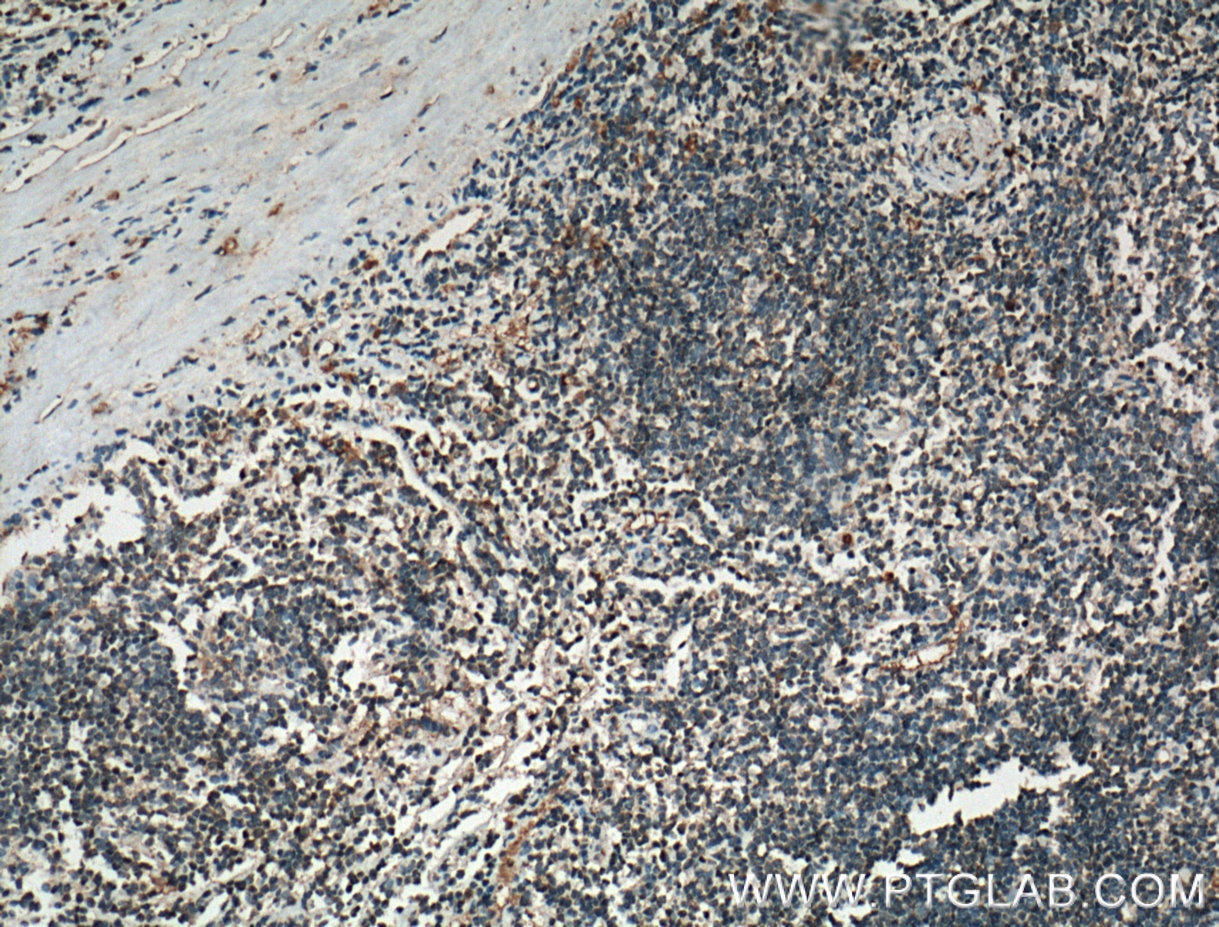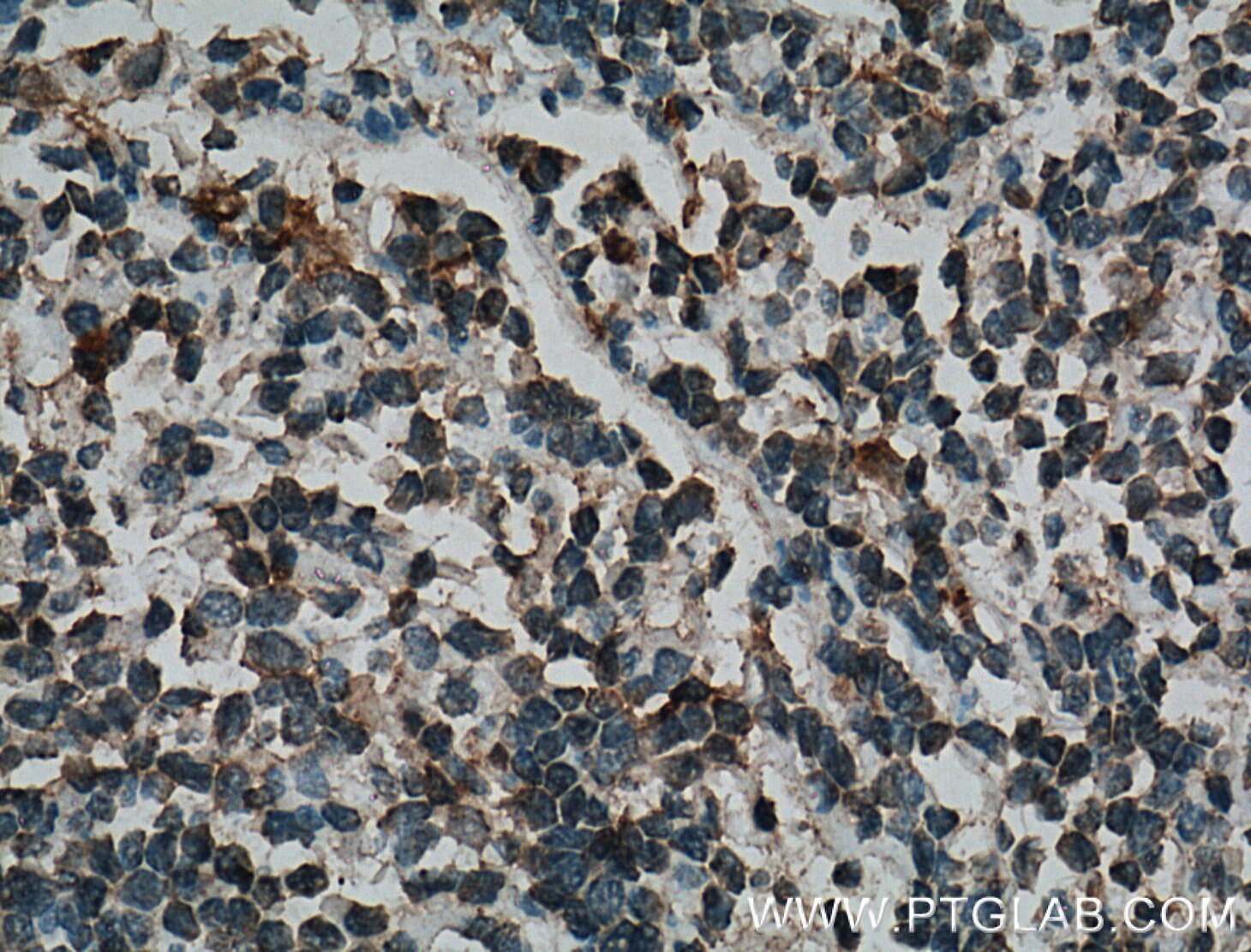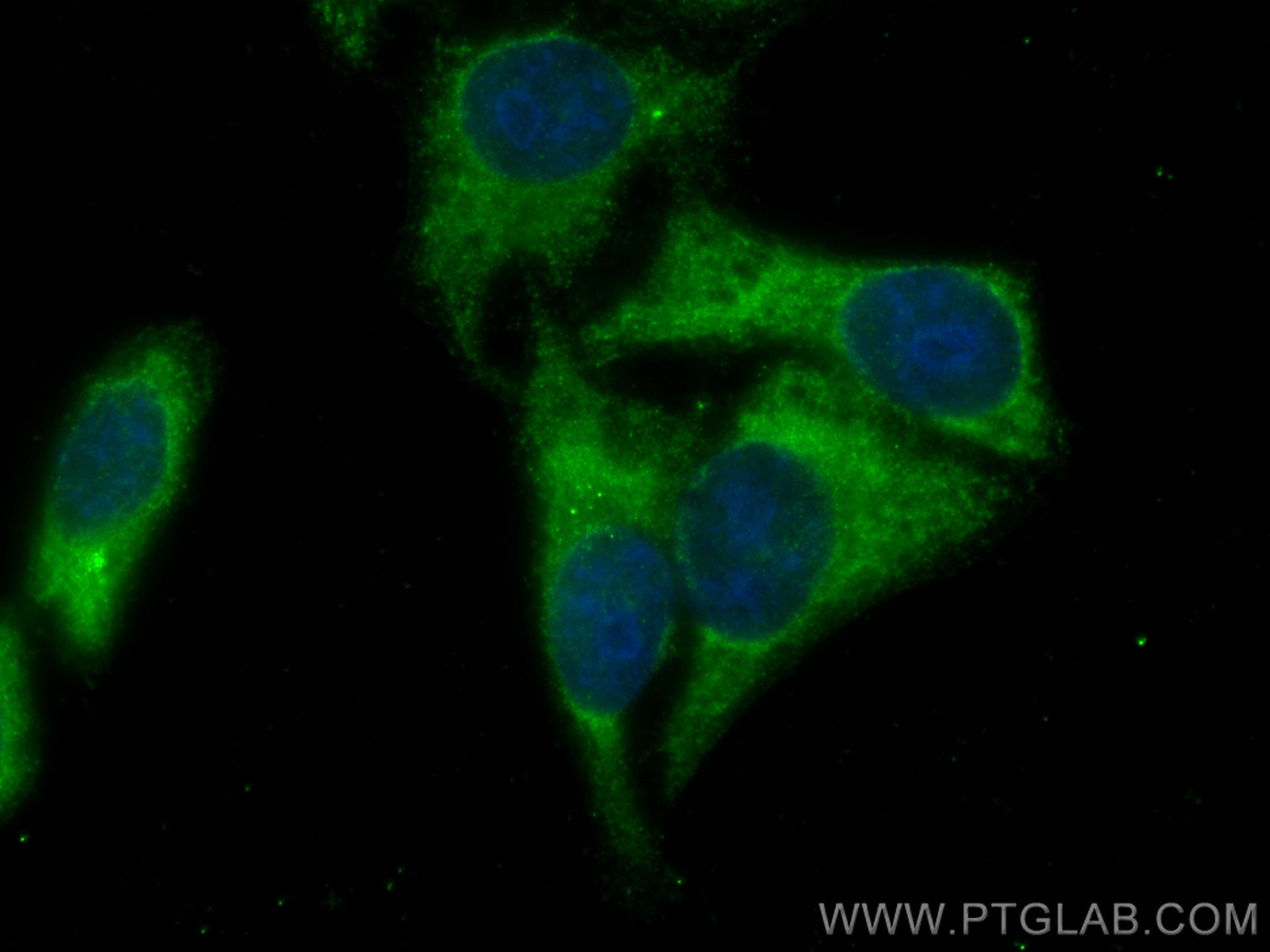HGF Alpha Polyklonaler Antikörper
HGF Alpha Polyklonal Antikörper für IF, IHC, WB, ELISA
Wirt / Isotyp
Kaninchen / IgG
Getestete Reaktivität
human und mehr (2)
Anwendung
WB, IHC, IF, ELISA
Konjugation
Unkonjugiert
Kat-Nr. : 26881-1-AP
Synonyme
Galerie der Validierungsdaten
Geprüfte Anwendungen
| Erfolgreiche Detektion in WB | HEK-293T-Zellen, humanes Plazenta-Gewebe, JAR-Zellen |
| Erfolgreiche Detektion in IHC | humanes Leberkarzinomgewebe, humanes Tonsillitisgewebe Hinweis: Antigendemaskierung mit TE-Puffer pH 9,0 empfohlen. (*) Wahlweise kann die Antigendemaskierung auch mit Citratpuffer pH 6,0 erfolgen. |
| Erfolgreiche Detektion in IF | HepG2-Zellen |
Empfohlene Verdünnung
| Anwendung | Verdünnung |
|---|---|
| Western Blot (WB) | WB : 1:500-1:2000 |
| Immunhistochemie (IHC) | IHC : 1:50-1:500 |
| Immunfluoreszenz (IF) | IF : 1:200-1:800 |
| It is recommended that this reagent should be titrated in each testing system to obtain optimal results. | |
| Sample-dependent, check data in validation data gallery | |
Veröffentlichte Anwendungen
| WB | See 14 publications below |
| IHC | See 3 publications below |
| IF | See 1 publications below |
Produktinformation
26881-1-AP bindet in WB, IHC, IF, ELISA HGF Alpha und zeigt Reaktivität mit human
| Getestete Reaktivität | human |
| In Publikationen genannte Reaktivität | human, Maus, Ratte |
| Wirt / Isotyp | Kaninchen / IgG |
| Klonalität | Polyklonal |
| Typ | Antikörper |
| Immunogen | HGF Alpha fusion protein Ag25456 |
| Vollständiger Name | hepatocyte growth factor (hepapoietin A; scatter factor) |
| Beobachtetes Molekulargewicht | 69 kDa |
| GenBank-Zugangsnummer | BC130286 |
| Gene symbol | HGF |
| Gene ID (NCBI) | 3082 |
| Konjugation | Unkonjugiert |
| Form | Liquid |
| Reinigungsmethode | Antigen-Affinitätsreinigung |
| Lagerungspuffer | PBS mit 0.02% Natriumazid und 50% Glycerin pH 7.3. |
| Lagerungsbedingungen | Bei -20°C lagern. Nach dem Versand ein Jahr lang stabil Aliquotieren ist bei -20oC Lagerung nicht notwendig. 20ul Größen enthalten 0,1% BSA. |
Hintergrundinformationen
Hepatocyte growth factor (HGF) is the most potent mitogen of mature hepatocytes in primary culture. HGF is derived from a biologically inactive single chain precursor of 728 amino acids (pro-HGF) localized mostly on the cell surface and in the extracellular matrix. The mature form produced following proteolytic cleavage is composed of a 69-kDa α-subunit (containing four kringle domains) and the 34 kDa β-subunit, similar to the catalytic domain of serine proteases, but with amino acid substitutions in the active site. HGF is a pleiotropic cytokine which exerts a variety of effects on several cells, being involved in the regulation of many biological processes, such as inflammation, tissue repair, morphogenesis, angiogenesis, tumour propagation, immunomodulation of viral infections and cardio-metabolic activities.
Protokolle
| Produktspezifische Protokolle | |
|---|---|
| WB protocol for HGF Alpha antibody 26881-1-AP | Protokoll herunterladen |
| IHC protocol for HGF Alpha antibody 26881-1-AP | Protokoll herunterladen |
| IF protocol for HGF Alpha antibody 26881-1-AP | Protokoll herunterladen |
| Standard-Protokolle | |
|---|---|
| Klicken Sie hier, um unsere Standardprotokolle anzuzeigen |
Publikationen
| Species | Application | Title |
|---|---|---|
ACS Nano Mesenchymal Stem Cell-Derived Extracellular Vesicles Attenuate Mitochondrial Damage and Inflammation by Stabilizing Mitochondrial DNA. | ||
Cancer Res ErbB3 targeting enhances the effects of MEK inhibitor in wild-type BRAF/NRAS melanoma. | ||
Clin Transl Med Ursodesoxycholic acid alleviates liver fibrosis via proregeneration by activation of the ID1-WNT2/HGF signaling pathway. | ||
J Control Release Peritoneal M2 macrophage-derived extracellular vesicles as natural multitarget nanotherapeutics to attenuate cytokine storms after severe infections. | ||
Int J Cancer Therapeutic Activity of DCC-2036, a Novel Tyrosine Kinase Inhibitor, against Triple-Negative Breast Cancer Patient-Derived Xenografts by Targeting AXL/MET. | ||
Cell Physiol Biochem Clinicopathologic Features and Prognostic Factors in Alpha-Fetoprotein-Producing Colorectal Cancer: Analysis of 78 Cases. |
